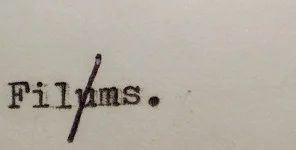Reviewed by Drew Ninnis.
Country: France, Israel.
Director: Yossi Aviram
Screenplay: Yossi Aviram
Runtime: 87 minutes.
Cast: Niels Arestrup, Lior Ashkenazi, Guy Marchand, Emma de Caunes.
Trailer: “Je voulais dire de ne pas t'inquiéter. [I wanted to tell you not to worry.]”
Viewed as part of the 2014 AICE Israeli Film Festival.
Plot: Hanoch is the owner of a bicycle repair shop and possible chess prodigy, uninterested in much more than playing with his older friend Fogel. He goes in search of a man from his past, Reuven, who is himself a police officer and case worker for missing persons. What passed between them many years ago, and why Hanoch is reluctant to approach him is a mystery – which, through coincidence, Reuven is sent to unravel.
Review: ‘It’s complicated, the disgrace’ Reuven (Niels Arestrup) attempts to explain to Hanoch (Lior Ashkenazi) in their final meeting. The meaning of those words overflow into the silence; the silences that writer-director Yossi Aviram’s perfect script builds and colours like negative space throughout this melancholy, superb film. The task that La Dune sets itself is almost impossible, attempting to chart the nature and absence of a fundamental relationship through the depression it causes, through the gaps it leaves, through the tiredness of life, and the contemplation of the beauty of the world which is everywhere and indifferent to it.
Aviram seems to assemble the film entirely out of delicate filaments, creating an intensely complicated emotional and psychological space through the wordlessness of his character’s routine existences. The film is so delicate that it is difficult to discuss or speculate about, the plot without damaging the experience for the viewer – and indeed, audience members are best left in the dark upon entering. La Dune is not a happy film, but it is profound and there is something deeply satisfying in the mature and restrained manner in which it treats its subject matter. Rather than being a film with a message, it is a film that probes a site of trauma and resignation, provoking the audience to draw their own insights from those silences.
Essential to the film is Niels Arestrup as Reuven, a police detective who spends his time tracking down difficult missing persons cases for the Paris police – a job which takes him overseas, and forces him to interact with individuals who do not wish to be found. Every gesture that Arestrup makes is perfectly ordinary and natural, yet the masterful actor conveys Reuven’s weariness and depression within those movements and silences. Several shots rest, in close up, on Arestrup’s face – watching as the meaning of what has been said or thought slowly seeps in, carrying the audience along with the character’s realisations. A man attentive to every detail while on the clock, Reuven is portrayed as distracted and detached in his private life. Aviram also deserves high praise for the deep yet slight portrait he conveys of the life and love of two elderly gay men – as Reuven’s tolerant partner Audiberti (Jean-Quentin Châtelain) gracefully manages his moods. Without florish or over-statement Aviram conveys an entire history of a couple. Equally as moving are the performances of Lior Ashkenazi, and the woman who becomes attached to him played by the always gorgeous Emma de Caunes.
I am reluctant to say more about this film; it is not a happy film, but it is quiet and gentle, deeply rewarding to the viewer. It builds silent, suggested relationships and creates entire histories in the minds of the audience. It confronts tragedy with a respectful, profound silence. Sometimes it may be too difficult to speak of these things; but the cast and crew of La Dune have demonstrated the vitality of contemplating them.
Rating: Four stars.

